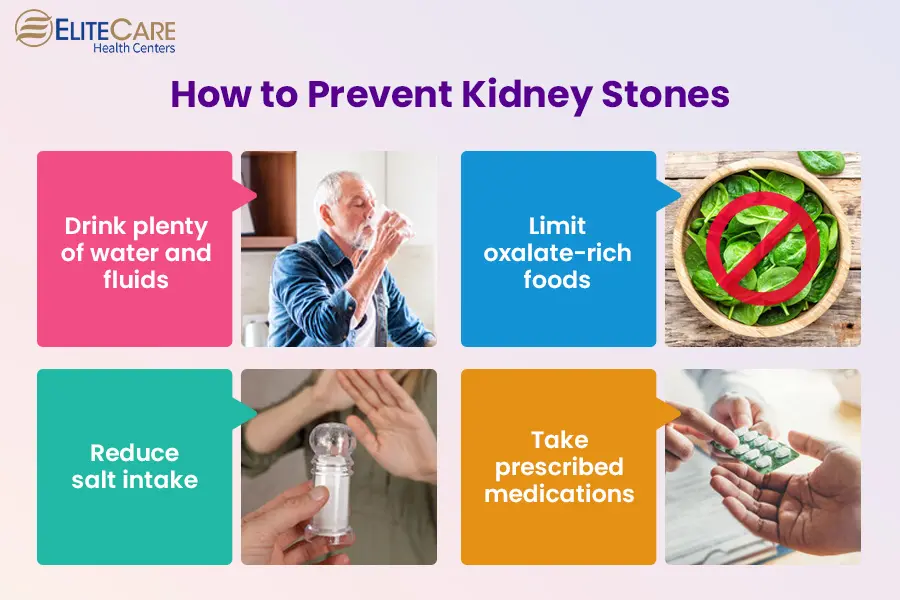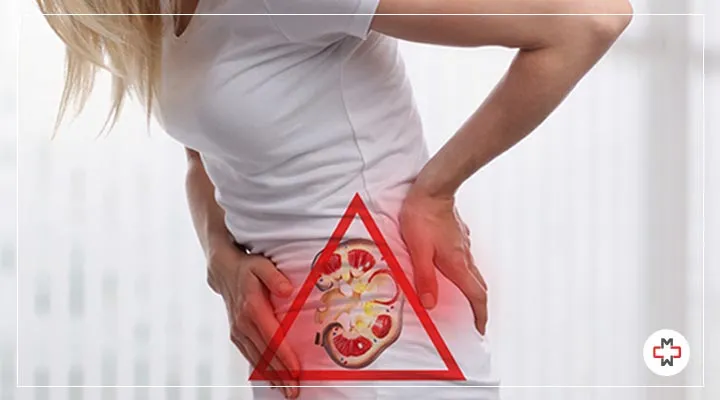Discovering the Manifestations and Causes of Kidney Stones in Comparison to Urinary Tract Infections: A Thorough Overview
The exploration of kidney rocks and urinary system tract infections (UTIs) discloses a complicated interaction of symptoms and underlying causes that necessitate mindful examination. While both problems can result in hematuria, they present distinctive professional functions and develop from various etiological factors. Recognizing the subtleties of each condition is critical for effective medical diagnosis and administration. What are the crucial differences in their signs and symptoms, and exactly how might these inform therapy approaches? The response to these concerns may supply vital understandings right into the prevention and care of these typical urological issues.
Review of Kidney Stones
Kidney stones, also recognized as renal calculi, type when specific substances in the pee crystallize and accumulation, resulting in the advancement of tough deposits within the kidneys. These rocks can vary in dimension, varying from a grain of sand to a golf round, and can be composed of numerous materials, one of the most typical being calcium oxalate, uric acid, struvite, and cystine. The formation of kidney stones is affected by numerous variables, consisting of nutritional behaviors, fluid intake, and hereditary predisposition.
Signs of kidney stones might consist of serious pain in the back or side, blood in the pee, nausea or vomiting, and frequent peeing, particularly as the rock relocates via the urinary system system. Diagnosis usually entails imaging studies such as ultrasound or CT scans, alongside urinalysis to recognize the rock's structure.
Therapy choices differ based upon the size and sort of rock, as well as the extent of signs (Kidney Stones vs UTI). Little stones may pass naturally with increased fluid consumption, while bigger rocks may call for medical interventions such as lithotripsy or surgical removal. Recognizing the pathophysiology and threat factors connected with kidney stones is important for effective avoidance and monitoring
Review of Urinary System Tract Infections
Urinary system infections (UTIs) are usual microbial infections that impact any kind of component of the urinary system, consisting of the kidneys, ureters, bladder, and urethra. They mostly take place when microorganisms, typically from the gastrointestinal tract, enter the urinary system, resulting in swelling and infection. UTIs are classified into two primary types: challenging and straightforward. Uncomplicated UTIs usually occur in healthy and balanced people with regular urinary tracts, while difficult UTIs might develop in individuals with underlying conditions, such as architectural problems or endangered immune systems.
The frequency of UTIs is notably greater in women than guys, primarily as a result of anatomical distinctions, such as a shorter urethra. Threat factors include sex, certain contraceptive methods, urinary system retention, and dehydration. The diagnosis of UTIs is normally confirmed via urine examinations, which might reveal the visibility of microorganisms, leukocyte, or red cell.

Signs of Kidney Stones
The pain linked with kidney rocks can manifest in various ways, usually leading individuals to seek medical interest. One of one of the most typical symptoms is extreme discomfort, normally localized in the reduced back or side, which might radiate to the abdomen or groin. This discomfort, commonly called sharp or cramping, can happen suddenly and may vary in strength.
Additionally, individuals might experience hematuria, or blood in the pee, which can look at here now range from tiny amounts to noticeable discoloration. This symptom might be come with by adjustments in urinary routines, such as enhanced regularity or seriousness, in addition to pain during peeing. Nausea and throwing up are likewise common, frequently resulting from the body's response to extreme pain.
In some situations, people may experience high temperature and cools, particularly if a secondary infection establishes More Bonuses because of the blockage brought on by the stones. Generally, the combination of serious pain, hematuria, modified urinary system patterns, and gastrointestinal symptoms can provide significant insight right into the presence of kidney rocks, warranting timely clinical assessment and intervention. Comprehending these signs and symptoms is essential for timely diagnosis and effective administration of the condition.
Signs of Urinary Tract Infections
Infections within the urinary system tract typically present an array of distinct signs that can substantially influence day-to-day live. The most common signs consist of a consistent impulse to pee, often accompanied by a burning sensation throughout peeing, referred to as dysuria. People might also experience boosted regularity of peeing, generating tiny quantities of pee each time.
Various other significant signs and symptoms consist of fetid or gloomy urine, which may show the presence of bacteria or pus. In many cases, pee may show up red or pink due to the presence of blood, a problem called hematuria. In addition, people may experience pelvic discomfort or pressure, which can further worsen the sensation of necessity.
Systemic symptoms might likewise materialize, such as high temperature, cools, and exhaustion, specifically if the infection has ascended to the kidneys. It is necessary to recognize these signs and symptoms early, as neglected urinary system infections can cause much more severe issues. Kidney Stones vs UTI. Prompt medical focus is suggested when these symptoms are observed, permitting ideal analysis examination and therapy to minimize pain and prevent more health issues
Reasons For Each Condition
Regularly, kidney rocks and urinary tract infections emerge from go distinct yet sometimes overlapping reasons that can affect individuals in different ways. Kidney stones commonly form due to metabolic elements, nutritional selections, and genetic tendencies. Increased levels of calcium, oxalate, or uric acid in the urine can bring about rock formation. Dehydration, insufficient fluid intake, and high-sodium diet regimens can aggravate these conditions, advertising formation within the urinary system system.

Recognizing these unique reasons is vital for prevention and treatment. Kidney Stones vs UTI. While way of living modifications might reduce the risk of kidney stones, suitable health and timely treatment of urinary system infections are vital for lowering their recurrence and connected difficulties
Final Thought
In summary, kidney rocks and urinary system infections present unique signs and underlying causes. Kidney stones are characterized by extreme discomfort and metabolic aspects, while urinary tract infections mostly entail microbial infections leading to urinary system seriousness and discomfort.
The exploration of kidney stones and urinary system tract infections (UTIs) reveals a complex interplay of symptoms and underlying reasons that warrant cautious exam.Urinary system infections (UTIs) are common microbial infections that affect any component of the urinary system, consisting of the kidneys, ureters, bladder, and urethra.Frequently, kidney stones and urinary tract infections arise from distinctive yet in some cases overlapping causes that can influence people in different ways.In summary, kidney rocks and urinary tract infections existing unique signs and symptoms and underlying causes. Kidney rocks are identified by extreme discomfort and metabolic variables, while urinary system system infections largely involve bacterial infections leading to urinary system seriousness and pain.